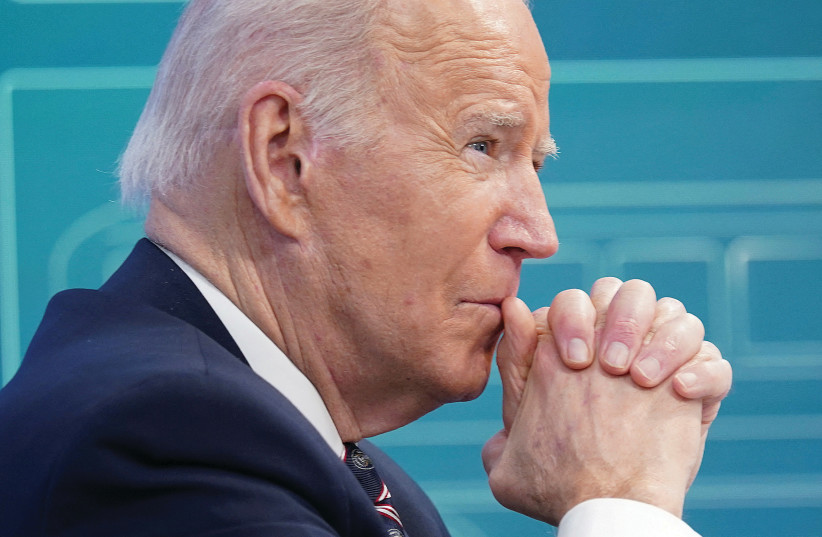Just last month, Chinese President Xi Jinping hosted Vladimir Putin, his Russian counterpart, and described him as his best friend. The two had issued a joint document that outlays their views of the world order and what has to happen to achieve it. China and Russia have certainly positioned themselves as the challengers to the United States leading the current order. That document vindicated the strategic thinking in Washington, which pitted China and Russia in this order as the strategic adversaries of the United States.
Two weeks later, Russia invaded Ukraine and the old-new Chinese and Russian alliance has proven more fragile than expected. In a Chinese style, clear and loud message, China separated itself from Russia on the issue of Ukraine, indicating a wider distance from Moscow than just the invasion. In explaining its abstention in the United Nations Security Council and General Assembly on resolutions severely condemning Russia, China highlighted its support for Ukraine’s territorial integrity, independence and sovereignty, lest the international community believes that Jinping asked Putin to delay the attack on Ukraine until the winter Olympics in Beijing ended, China’s ambassador to the US clarified in an article in The Washington Post. “Assertions that China knew about, acquiesced or tacitly supported this war are purely disinformation,” and “conflict between Russia and Ukraine does no good for China. Had China known about the imminent crisis, we would have tried our best to prevent it.”
That the war does no good for China is an understatement. On March 5, China’s Prime Minister Li Keqiang presented the work plan of his government for 2022 to the National People’s Congress, the Chinese parliament. He recognized the realities of the world economic recovery that lacks drive, where commodities prices remain high and China “… is under the triple pressures of shrinking demand, disrupted supply and weakening expectations.” And while predicting that this year China will face many more risks and challenges, he sets up the target of around 5.5% Gross Domestic Product (GDP) growth for this year, adding 11 million new jobs and keeping urban unemployment at no more than 5.5%.
Many economists raise serious doubts over China’s ability to meet the targeted GDP growth for 2022. The trajectory in the last two quarters of 2021 showed a decline from 4.9% to 4% growth. Prime Minister Li himself admits to the People’s Congress that this will require arduous efforts. What he does not tell them is that a state in which almost one fifth of GDP is generated from exports and the US and the European Union are the major markets needs stable relations with these economies.
That explains the conversation between Biden and his Chinese counterpart on March 18, which dealt mostly with the issues of Ukraine and Taiwan. It is a fascinating take of the Chinese readout of the conversation. “Biden reiterated that the US does not seek a new Cold War with China. It does not aim to change China’s system… the US does not support Taiwan independence and it has no intention to seek conflict with China. The US is ready to have a candid dialogue… and effectively manage competition and disagreements.” Clearly China is seeking to ensure domestic and external markets that although the US and China remain competitors they will manage amicably their differences and keep them under control.

The presidential conversation serves the immediate interests of the US, as the super power finds itself stretched in managing simultaneously two global conflicts. Concentrating on the war in Ukraine and preventing Russia from a victory is the main objective for now and success may improve the president’s approval rating and the Democrats running in the November midterm elections. Meanwhile, the other rivalry with China can wait within an unwritten truce.
That situation may also ease, at least for now, the squeeze Israel find itself in between US pressures to curtail its economic cooperation with China and the wish to benefit from these relations. There should not be any illusions about the long term nature of US and China relations and competition, that it is adversarial and at times, tense and destabilizing. The Israeli mechanism aimed at vetting foreign investments and economic involvement has to stay on guard.
The writer is a senior researcher in the Israel-China program, at the Institute of National Security Studies (INSS),Tel Aviv University and a former Israeli diplomat in the US, the EU and Jordan.
More on this topic will be discussed during the annual Israel-China research program conference: “China in the Middle East: Winds of Change” on April 4, to be aired on the INSS website.
